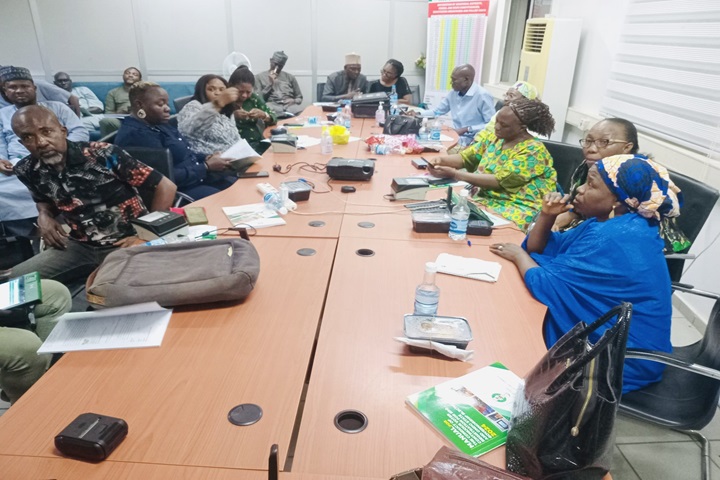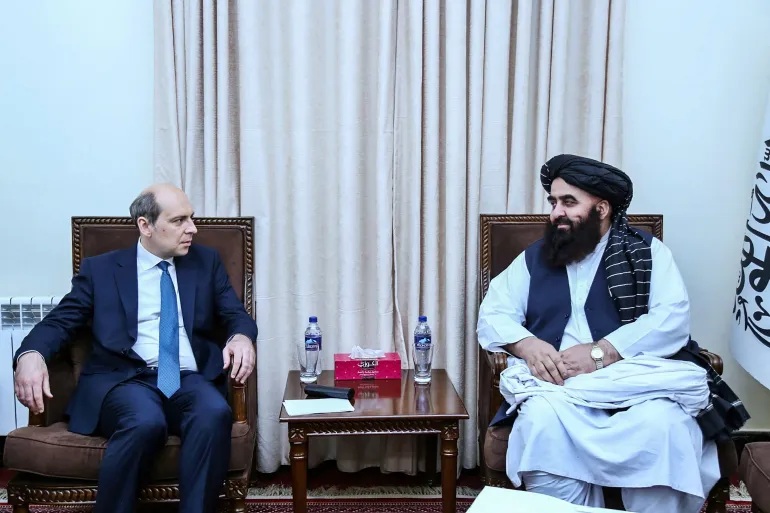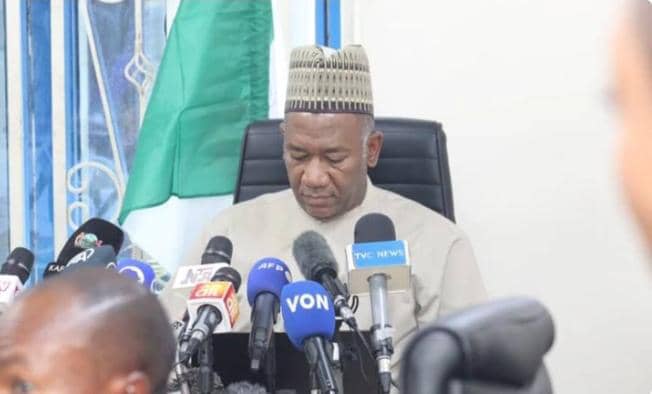News
Aid groups sound alarm over US push for Israel’s Gaza aid strategy

Aid organizations on Friday, May 9, 2025, raised serious concerns over efforts by the United States to pressure them into accepting an Israeli plan that would allow limited humanitarian aid into Gaza under strict conditions.
The controversial push has drawn criticism from humanitarian groups.
They argue that the plan undermines their independence and could worsen the crisis in the region.
The push is said to include involvement from the United Nations’ World Food Programme (WFP).
Sources familiar with the negotiations, along with various news outlets, report that the Trump administration is exerting heavy pressure on international agencies.
This is supposedly for them to align with Israel’s strict stipulations for aid delivery.
These conditions are being proposed as prerequisites for resuming humanitarian assistance in Gaza, where the situation has become increasingly dire due to a prolonged blockade.
Since March, the Israel Defense Forces (IDF) have enforced a full blockade on the Gaza Strip, following the collapse of a ceasefire.
This truce had been brokered after the conflict erupted in October 2023 when Hamas launched a deadly attack on Israel that killed around 1,200 people.
In retaliation, Israel launched a military campaign that has so far resulted in the deaths of more than 52,000 Palestinians in Gaza, deepening the humanitarian crisis.
The two-month blockade has brought Gaza’s 2.3 million residents to the brink of starvation.
In response, U.S. officials are pushing aid organizations to accept a deal under Israel’s terms.
They argue that it is the only practical way to restart aid distribution.
Reports from The Times of Israel indicate that the Trump administration has even threatened to cut funding to the WFP if it does not comply with the proposed plan.
As conditions deteriorate, the Trump administration appears determined to move forward with its strategy.
On Monday, President Donald Trump addressed reporters at the White House, saying, “The people of Gaza are starving and we’re going to help them get some food.”
Meanwhile, his Middle East envoy, Steve Witkoff, reportedly met with members of the United Nations Security Council on Wednesday.
This was to discuss the Israeli aid proposal, according to The Washington Post.
Trump’s position on Gaza has previously raised eyebrows.
At one point, he suggested the U.S. could take over Gaza and turn it into a tourist destination like a “Riviera.”
This is reportedly a vision that would involve relocating the territory’s population to other countries.
This proposal was widely criticized as unrealistic and ethically problematic.
A spokesperson for the U.S. State Department defended the administration’s approach.
It said that Trump was looking for “creative solutions” that would both protect Israel and support Palestinians in need.
“We welcome moves to quickly get urgent food aid into Gaza in a way that prevents it from falling into the hands of terrorists, such as Hamas,” the spokesperson said.
The spokesperson further criticized previous humanitarian strategies, claiming they had failed to deliver essential supplies like food, medicine, and shelter.
“Endless press releases and Hamas appeasement haven’t delivered food, medicine, or shelter to those who need it,” the official added.
“This is a new approach with one focus: get help to people NOW.”
Despite these assertions, humanitarian agencies remain deeply skeptical of the Israeli proposal and the U.S. pressure campaign to enforce it.
Aid organizations argue that the conditions set by Israel are overly restrictive.
They also argue that the conditions could force them to compromise their principles of neutrality and independence.
Many are particularly alarmed by the notion of being compelled to work within a framework controlled or heavily influenced by political and military actors.
Critics also fear that the plan could further endanger Palestinians by creating centralized distribution points under armed security.
This, they say, could potentially putting civilians at risk.
There is also concern that such a system would exclude the most vulnerable – children, the elderly, and the infirm, who may be unable to travel to designated aid hubs.
In summary, the Trump administration insists that the new strategy is a practical and immediate solution to the growing humanitarian emergency in Gaza.
Aid groups on the other hand, warn that pressuring them into accepting Israel’s terms could undermine their ability to operate safely and effectively.
The core issue remains: how to deliver life-saving aid without violating humanitarian principles or worsening the suffering of the Palestinian people.
For Diaspora Digital Media Updates click on Whatsapp, or Telegram. For eyewitness accounts/ reports/ articles, write to: citizenreports@diasporadigitalmedia.com. Follow us on X (Fomerly Twitter) or Facebook












